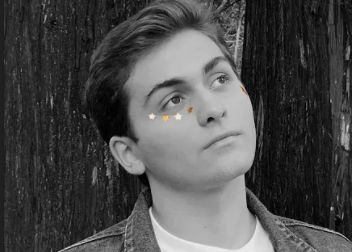Taylor Swift’s re-recording drama, fully explained
March 12, 2021
Taylor Swift is beginning to re-record her first six albums following the sale of her masters by her old record label.
Swift announced on June 30, 2019 that Scott Borchetta, CEO of Big Machine Records (BMR), had sold the masters of her first six studio albums to Scooter Braun, a record label executive and long-time enemy of Swift. For context, the master recording of a song is the first recording of it, meaning that it is the one from which all copies across all services are made; owning the rights to masters means having control over who can make or distribute the tracks.
Swift said that the sale took place without her knowledge and the fact that it was made to Scooter Braun was extremely hurtful.
“Essentially, my musical legacy is about to lie in the hands of someone who tried to dismantle it … Never in my worst nightmares did I imagine the buyer would be Scooter,” Swift said in her lengthy post.
The fallout from this was seen in Twitter warfare, with haters of Swift pitted against those keeping the tag #standwithtaylor trending. Various celebrities and friends of Swift’s such as Halsey and Iggy Azalea expressed support for her vocalism and criticized Braun’s and Borchetta’s actions. Many others expressed how the music industry is known for taking advantage of vulnerable artists—certainly true for Swift, who originally signed to BMR at just 15 years old.
A year prior to the resale of her masters, Swift switched her label to Universal Music Group (UMG), under the agreement of being able to own her masters of future recordings. This meant that Lover, Swift’s seventh studio album, which would release in two months, would be the first of her albums to be owned by her alone, unaffected by the sale.
This was the last that was heard on the situation for a while, until, in November 2019, Swift shared on Twitter that Braun and Borchetta were preventing her from performing her old music at the American Music Awards (AMAs), where she was being named Artist of the Decade.
“Right now my performance at the AMAs, the Netflix documentary and any other recorded events I am planning to play until November 2020 are question marks,” Swift said.
In that last tweet, Swift is referencing the fact that she was legally allowed to start re-recording the first five of her old, BMR-owned albums starting in November of 2020.
In 2020, Swift released two albums, folklore (July) and evermore (December), which both went on to receive critical acclaim. folklore racked up the most day on streams of any album on spotify, and went on to receive six Grammy nominations.
Swift returned to her battle in November 2020, when she announced on Twitter that her masters had been sold yet again to Shamrock Holdings. Swift shared that for the past year she had been trying to purchase her masters back through negotiations with Braun’s team. Braun’s team had demanded Swift sign a highly-irregular Non Disclosure Agreement (NDA), one that would bar her from negatively discussing him in the public eye. Despite this ultimatum, Swift rejected both the NDA as well as Shamrock’s offers to work with her despite still funneling profit to Braun.
“I have recently begun re-recording my older music and it has already proven to be exciting and creatively fulfilling. I have plenty of surprises in store,” Swift tweeted, confirming at last, that re-recordings were coming soon.
Finally, on Feb. 11, Swift announced that Fearless (Taylor’s Version), the re-recording of Swift’s second studio album, will release April 9. This date also marked the release of the first re-recorded single, “Love Story (Taylor’s Version).” The new album features a brand new cover, matched vocals and production and includes six previously-unreleased tracks from “the vault.” The beginning of this new era of re-recordings leaves Swift fans eager to see what could come with each new album.
“I am looking forward to feeling like I’m listening to a song I’m comfortable with for the first again,” junior Amanda Jiricek said.
The fanbase is also looking forward to hearing the new tracks, receiving new music videos and (a long time wish) hearing the 10-minute, explicit recording of “All Too Well,” a scrapped demo of the fan-favorite.

